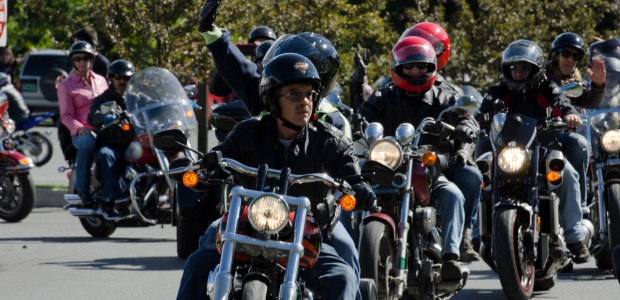
GHSA Study Estimates Motorcyclist Fatalities Fell in 2013
This report is welcome news, but overall, the numbers have not improved in the past 15 years.
The number of motorcyclists who died in 2013 road accidents is projected to be 7 percent below the fatality total of 2012, according to a "Spotlight on Highway Safety" report of preliminary state data the Governors Highway Safety Association released May 6. This estimated decline would be only the second since 1997; the report points out that, overall, motorcyclist safety in the United States hasn't improved in 15 years.
The report's author, Dr. James Hedlund of Highway Safety North, has written reports on this topic for GHSA since 2009, and his analyses have been remarkably accurate, according to the association's news release about the 2013 report. It said all 50 states and the District of Columbia provided preliminary motorcyclist fatality counts for the first nine months of 2013 and explained why their numbers rose or fell. "Compared with the first nine months of 2012, motorcyclist fatalities decreased in 35 states and the District of Columbia, increased in 13 states, and remained the same in two," the release stated.
Hedlund estimated the final motorcyclist fatality total for 2013 will be 4,610, or 7 percent fewer than the 4,957 recorded in 2012 and very close to the 4,612 motorcyclist deaths in 2011. His report found that weather was the chief factor behind the drop in motorcyclist fatalities: The first six months of 2012 were unusually warm and dry, prompting an uptick in ridership, but the weather during the first nine months of 2013 was cooler and wetter.
"It's heartening that motorcyclist fatalities didn't increase over the past couple of years, but they're not decreasing, either," said Kendell Poole, GHSA's chairman and director of the Tennessee Office of Highway Safety. "Long-term gains in motorcyclist safety won't occur because riders are deterred by bad weather, but from consistent use of proven countermeasures. By far, helmets are the single most effective way to prevent serious injury and death in the event of a motorcycle crash. But states are going backward when it comes to enacting this proven, lifesaving countermeasure."
The report calls for increasing helmet use -- 19 states and the District of Columbia now require their use, while 28 other states require helmet use by riders younger than age 18 or 21. The report also recommends that states reduce alcohol impairment, reduce speeding, provide motorcycle training to all who seek or need it, encourage all driver to share the road with motorcyclists, and ensure motorcyclists are properly licensed.